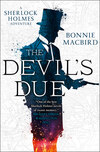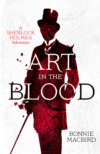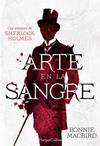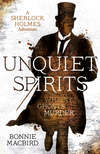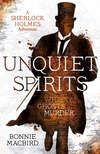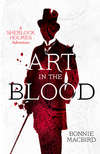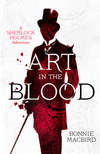Kitabı oku: «The Devil’s Due», sayfa 4
CHAPTER 8
The Lady
I settled in again by the fire and cracked open a nautical adventure book I had left behind. Holmes, pacing, checked his watch. ‘Do not get too comfortable, Watson. We must go out again shortly. Crime does not halt for inclement weather. The Goodwin brothers have not been forthcoming with the list they promised. Perhaps it is time to pay them a visit.’
‘It has been less than two hours, Holmes,’ I said. ‘Give them a chance.’
‘It is ridiculous that they did not have the names in their heads.’
‘They are very social. Perhaps between parties and Parliament there are many names to remember.’
‘Yes, yes, Watson,’ said Holmes impatiently.
I nodded and added a shot of brandy to my tea. Holmes waved away the offer of the same and took out his notebook in which the Goodwins had scribbled the names of the few Luminarians they could remember.
‘Oliver Flynn is the odd name on this list. He is the only artistic member. All the rest are industrialists or businessmen. He does not seem to fit. I wonder if something is hidden in the man’s past.’
‘What a talent he is!’ I smiled at the thought of Flynn’s play Mary and I had attended at the Haymarket only last week. It was a trifle, to be sure, but a delicious evening of entertainment. His latest was what critics referred to as a “comedy of manners”, and we had thoroughly enjoyed his skewering of the aristocratic class, although done with a modicum of sympathy. ‘Of course, he is certainly a character,’ I said, ‘Was there not some scandal brewing? Something about his unusual … romantic life.’
Holmes looked up from perusing the articles on the table. ‘Raise your view, Watson,’ he snapped.
I turned back to my book, irritated.
‘Sorry, dear fellow. I should not let slander-by-Zander get under my skin. Flynn engenders more gossip than I do! He hails from Dublin originally, was an orphan who pulled himself up by his own bootstraps. This fact is little known – indeed, he hides it – but he has almost single-handedly funded the orphanage in which he spent his early years.’
‘Fascinating, Holmes. His public persona is so different from that.’
‘Few of us reveal our true selves in public,’ said Holmes, cryptically.
Mrs Hudson appeared with what at less pressured times was the kind of announcement dearest to our hearts. ‘Mr Holmes, a client is here to consult you. A Lady Eleanor Gainsborough.’ Her expression conveyed that the visitor had impressed her, and that Holmes had better respond, and quickly.
‘I am quite busy,’ said he.
‘She was most insistent,’ said Mrs Hudson.
‘Holmes, have you time for this?’ I wondered. ‘You seem to have a rather full plate.’
‘I shall determine that, Watson,’ said he, peeved. ‘Send her up, Mrs Hudson. When it rains, it pours.’
And although indeed it was pouring outside at that moment, in walked a lady as if blown into the room by a summer breeze, so untouched was she by the weather.
She stood just inside the doorway, a graceful woman of about forty-five. Her wealth and breeding were evident by her poised manner and costly raiment. But she also gave the impression, so common among the very rich, that she was wearing some kind of cloak of ethereal matter, protecting her from rain, dirt, and all the minor inconveniences.
She smiled graciously at the two of us. ‘Mr Sherlock Holmes? And the friend – Doctor, er …?’
‘Watson, madam, at your service.’
She smiled faintly and turned to Holmes. ‘I am so pleased to find you here, and willing to receive me, Mr Holmes.’
She held out her hand, palm down, and Holmes crossed to her, kissing it in the manner of a true gallant. ‘Lady Gainsborough! Welcome.’
‘Lady Eleanor, please, Mr Holmes.’
‘As you wish,’ he said.
I nodded deferentially as Holmes guided her to the basket chair which was angled closest to the fire. She placed her reticule on the table, took in the room with its slightly sinister and decidedly chaotic clutter, and then sat, arranging her burgundy velvet skirts around her.
As she did so, I took in the full measure of a born aristocrat, or so I gathered from her gracefully erect posture, her porcelain skin with only the slightest natural blush, her bounteous yet impeccably arranged coiffure of dark brown curls, and the subtle touches of discreet antique jewellery.
Her dress was of the finest quality, with a deep chevron of black lace panels down the front which narrowed into a waist whose tiny size belied her years. She smiled, and it melted any trace of the late autumn chill that lingered in the air and subtracted ten years from my estimation of her age.
‘Mr Holmes, I am sure you can help me. I have read so much of you and your remarkable achievements, both by Doctor Watson here, as well as in the newspapers.’
Holmes shot me a sudden glance, indicating the table where the damning tabloid articles were still arrayed. I had forgotten about them. I got up to stack them discreetly before our visitor could catch a glimpse, although I could not imagine a lady of her class taking interest in The Illustrated Police Gazette.
‘This is, of course, despite recent slander,’ she continued, dashing this thought to pieces and eyeing me with amusement. ‘My maid brings the Gazette into the house from time to time, Doctor. They are hard to resist.’ I finished stacking and sat back down.
She leaned forward as if to impart a secret. ‘Likening you to the Devil, indeed! For shame! In my view, you are an angel of justice. Your capturing the Covent Garden Garrotter last summer – what a triumph, Mr Holmes! I have followed your adventures for some time. My late husband was an admirer as well.’
Holmes, more susceptible to flattery than he would care to admit, softened slightly, but turned the conversation to business. ‘Madam, I can see that you are troubled. How may we be of service to you? It must be a matter of great importance for you to have travelled though this weather, rather than for you to summon us to your school. I read that you have visited this worthy institution before coming here.’
She started at this. ‘You read me … like a book?’
‘It is a figure of speech, madam. Watson, Lady Eleanor is the co-founder and funder of the remarkable Gainsborough School for Young Ladies, a private, charitable enterprise which rescues destitute young women from a life on the streets.’
‘Well, my goodness, yes. You are remarkably well-informed. Of course, my girls are not only poor, but have been plucked from very specific life on the streets,’ said the lady. ‘One in which the sad young things have found nothing to sell but themselves.’
‘I see,’ I said.
‘I am surprised you know of us,’ said the lady to Holmes.
‘Your school is quite renowned, Lady Eleanor.’ He turned to me. ‘This laudable institution provides education and training which transforms these waifs into employable young ladies – suitable for work in service, is that not correct?’ He turned back to Lady Eleanor.
‘Indeed, it is, Mr Holmes,’ said the lady, pleased at the recognition. ‘But we are hidden away in an unfashionable part of town and have had little notice by the larger community. How do you know this?’
‘I make it my business to follow everything of importance in London, Lady Eleanor.’
‘You must not sleep, then. But returning to my question, how could you have read that I had just now been to visit the school?’ she asked. ‘The papers do sometimes follow me – as they do you – but not by the minute.’
‘It was written on your gloves.’
‘My gloves?’ She held an exquisite pair of pale lavender leather gloves in her left hand.
‘The ink stain on your glove, there,’ said Holmes.
Barely discernible was a small stain on one of the index fingers.
‘You are far too meticulous in your habillement to have left the house with a stained glove, therefore you did some writing elsewhere,’ said Holmes. ‘Normally, one removes gloves to write, but you left yours on, presumably because you were in an environment where you did not wish to sully your hands. I cannot imagine you engaging the type of barrister or accountant where you would feel the need, but paperwork at the school might have required your attention, and in that undoubtedly less pristine atmosphere you chose to leave them on.’
‘I could have done so while shopping. Written a cheque, perchance,’ said the lady, who seemed amused rather than offended by Holmes’s showy display.
‘I warrant you do not do your own shopping, save for very particular establishments, a dressmaker perhaps. And there not only would you have an account, but you would have removed your gloves.’
She laughed. It was a beautiful, silvery sound. ‘Well, you are entirely correct, Mr Holmes, and I am even more convinced that it is the right thing to consult you!’
Holmes smiled at the lady.
‘It is fascinating,’ she continued, ‘that Mr Zanders of the Gazette seems to attribute your powers, which he declares are waning, to nefarious means. I personally think your past results tell quite a different story. Is it jealousy, perhaps, or does the man hold something against you?’
Holmes’s smile faded.
‘That is an astute observation indeed, madam. I once took this journalist to task for a gross indiscretion. But please, let us turn to the reason for your visit. How can we help you?’
‘An incident occurred at my school and I require your advice, as well as your assistance.’
‘Please lay your problem before us.’
‘There has been an attack on one of my star pupils, a young woman named Judith. She was rescued from the streets three years ago and in that short time has proven herself highly intelligent, having quickly acquired remarkable fluency in reading, figures, and household organization. I did not know it at the time, but she speaks French, as her mother was French. Although it is French of the streets, she has sought to remedy that, and her colloquial English, with success.’
‘Good. This attack, Lady Eleanor? What happened?’
‘Judith was attacked in her bed last night as she slept.’
‘Attacked!’ I cried.
Holmes frowned. ‘Details, if you please?’
‘Judith, as one of our senior and most accomplished students, has earned a room to herself. It was about two in the morning … early this morning … when an intruder entered this room, pulled back the covers, grasped her hand, and attempted to sever one of her fingers with a knife.’
‘My God!’ I exclaimed.
‘Which finger?’ asked Holmes.
‘Er … I am not sure. The middle? The ring?’
‘It matters. And madam, you are sure? Which hand and which finger?’
‘The left, I think. Ring finger. But those are not the salient points.’
‘I will determine that. What else?’
‘The assailant was masked, hooded. She did not see the man.’
‘Is she sure it was a man?’
‘Yes. She struck him and he cried out.’
‘I see. You said “attempted”. I trust he was not successful?’ asked Holmes, leaning forward in his chair with that keen expression of a hound on a scent.
‘She screamed. Her attacker fled, dropping the knife as he ran.’
‘The wound. Deep? Superficial?’
‘Just a shallow cut. Almost a scratch. But very upsetting.’
‘May I see the knife?’ Holmes held out his hand.
She started again. ‘How did you know I brought it to you?’
‘Lady Eleanor, please. No games. I can see the outline of it in your silk reticule. You are clearly not used to subterfuge, nor violence. Is it bloody, have you wrapped it? If so, you will have removed evidence.’
She paused, and her eyes filled with tears. ‘Oh, Mr Holmes,’ said she. ‘This is a most trying experience.’ She then withdrew the knife, holding it with distaste with only one finger and her thumb. It was wrapped in a cloth napkin.
‘Ah,’ said Holmes, examining it. ‘It has been wiped clean. That is unfortunate.’
Holmes held it to a light on the table next to him, picked up a lens and examined the plain, flat handle and then the blade. It was an ordinary kitchen knife. Not distinguishable in any way except for small bloodstains on the blade. He ran his finger along the edge.
‘Dull. No fingerprints are left. This tells us nothing,’ said Holmes. ‘Might it have come from the kitchen at the school?’
‘I do not know,’ said the lady. ‘I am not familiar with their utensils.’
Holmes continued to examine the knife, then he tossed it on a side table.
‘I presume you want me to trace this assailant?’
‘What I would like, Mr Holmes, is protection for dear Judith. She is my prize pupil. This has upset her greatly, and this catastrophe will delay my placing her until her wound heals. Most of my girls can only aspire to be parlour-maids or maids of all work. But Judith will be my first to graduate to a position of governess.’
‘Impressive,’ I said, imagining this tale of rags to respectability.
‘I thought it was merely a scratch,’ said Holmes. ‘Her wound?’
‘Perhaps I have not described it correctly. It is a small cut. But it is bandaged against infection.’
‘Good,’ said I, thinking that few people took such things seriously enough. Holmes shifted in impatience.
The lady continued. ‘I would very much like you to come to the school and to lie in wait for this assailant, Mr Holmes. I feel certain he will try again.’
‘Dr Watson perhaps could assist. Is there an empty room nearby where he could wait?’
I was surprised at this but said nothing.
‘No, it must be in her room. And you, sir. Alone. There is not enough space for you both in the room with Judith.’
‘Why do you not remove the girl to a place of safety?’ Holmes asked. ‘Perhaps lodge her in your own home until this villain is apprehended?’
‘Oh, no! I – I could not do that. My staff would be – oh no! But the assailant would not likely return, then, would he? I ask you again, sir. Please come and wait in her room with her.’
I had a sudden thought of our escapade back in ’83, protecting the gentle Helen Stoner, a young woman who nearly met the same gruesome end as her sister Julia – death in her own bed by the improbable means of a trained snake, engineered by her evil stepfather. We had awaited this terrifying event by secreting ourselves, with difficulty, in the lady’s bedroom. However, the young person herself had not been present. What Lady Eleanor was proposing was quite unacceptable.
‘I am sorry, Lady Eleanor. I am otherwise occupied,’ said Holmes. ‘But I have in mind the perfect solution.’
‘But, sir—’
‘No,’ said Holmes, firmly.
Lady Eleanor was taken aback. As pleasant and reasonable as she seemed, she was also clearly not used to hearing the word ‘no’.
‘Here is my solution, madam. I will send over one of my deputies. A young woman who will fit right into your school, a minnow in a school of minnows.’
‘A deputy?’
‘I have employed her before, and more than once. Her name is Hephzibah O’Malley.’
‘That is an … unusual name,’ said the lady.
Holmes noted this and glanced at me. ‘Heffie, as she is known, is an East End orphan, half Jewish and half Irish, and you can well imagine she has felt the brunt of prejudice. She has learned to defend herself masterfully. She is an accomplished street-fighter. But that is the smallest of her skills. Heffie is intelligent, subtle, and observant – an easily underestimated young person.’
Lady Eleanor looked doubtful, but Holmes pressed on.
‘The assailant, judging from his lack of success and his willingness to be frightened off so readily, is not a professional. Heffie will be able to handle him, should he return.’
I wondered that I had not heard of her before.
‘How old is this Heffie?’ asked the lady.
‘Sixteen.’
‘You would send a child to defend my Judith?’
Holmes sighed. ‘Heffie is no ordinary young lady. Her late father was a boxer and wrestler and I have seen her hold her own against several men. Heffie will also fit in perfectly as one of your rescues. There could be no one better suited to watch over Judith. Your assailant, if he is connected with the school, will not even realize that Judith has acquired a bodyguard. Even Scotland Yard has made use of her services. Do you see? Heffie is precisely what you need.’
‘I need you, Mr Holmes.’
‘Madam, I am not free at present. And consider this. I would stand out in that environment like a giraffe in a pen of kittens.’
‘I beg you to refrain from referring to my girls as minnows or kittens,’ said the lady with dignity. I will admit that I, too, was taken slightly aback by Holmes’s colourful analogies. ‘But if it is not to be, it is not to be.’ She rose, her disappointment obvious.
She glanced once more around the room, revisiting the considerable clutter, including the grotesqueries on the chemistry table. She drew herself up, then ran a hand along the fireplace mantel. A finger came away dirty. She tapped some books, lying askew on a nearby bookcase.
‘Mr Holmes. You could benefit from more meticulous housekeeping. Order reflects competence! One of my girls would do wonders with this unhealthy room. She would clean thoroughly, organize all. Will you consider hiring one? I am always looking to place a girl. One of my best is available starting immediately. Anna would—’
‘Much as I enjoy appearing competent, no thank you, Lady Eleanor,’ said Holmes with a small smile. ‘Now if you will excuse us, please.’
‘It is hard to take no for an answer, Mr Holmes. You say Heffie can do the job I require and have insisted, past my reservations. Yet you will not take my advice. Why not consider Anna? She would tidy up this mess in a day.’
‘Thank you, madam,’ said Holmes more firmly, ‘but this room is exactly how I like it.’
‘But it is very kind of you to suggest,’ I offered.
She paused. ‘I will expect your … Heffie, then. When exactly?’
‘I will have her there by morning. In the meantime, place Judith temporarily in a new room with other girls. Please have an extra bed made ready in Judith’s room for tomorrow.’
She nodded and departed without another word.
‘What an extraordinary woman,’ I exclaimed.
‘In what way, Watson?’
‘So elegant, so self-contained. And quite lovely for her age.’
‘She is only a few years older than you. And she, or her girl, is lying, at least about a few things.’
‘What? Seriously, Holmes?
‘The knife is suspect. It is too dull to have made a small wound. And when Lady Eleanor withdrew the knife, I also spotted a receipt dated today from Verrey’s Restaurant.’
‘What does that matter?’
‘Odd to dine socially while on an errand such as this. Perhaps it is nothing. But you know me, Watson. I do not find most women all that trustworthy.’
‘Well, I disagree. I think Lady Eleanor was simply upset. Anyone would be.’
‘Let us drop the subject, Watson. We have more substantial work to do. It is now past five and already dark. I am going to fetch Heffie and set her on the job.’
‘I shall go with you,’ I said, curious about this girl whose description had frankly intrigued me.
‘I have another task for you, Watson. As the Goodwins have not sent over the list of Luminarians which they promised, I would like for you to go to Mayfair and retrieve it from them. That should, at least, prove entertaining. Meanwhile, I shall be back for supper by eight, and will see you then.’
‘Shall we dine at Simpson’s, Holmes? You could do with a fine roast beef and Yorkshire pudding!’
‘You persist, Watson! Yes, then. Eight o’clock? I look forward to it.’
CHAPTER 9
A Question of Taste
My career had taken me through challenging terrain on three continents, but I will admit that there were corners of London which could seem both foreign and unnerving to me. Mayfair was one.
Before departing, I sent over a quick note to the Goodwin brothers to politely warn of my impending visit and made an effort to elevate my appearance – a close shave, a fresh collar, and a quick change back to my ‘ostentatious gold watch’, as Holmes had called it. While he teased me about pretension, these touches added needed gravitas, or so I felt.
My curiosity rose as my cab drew near Grosvenor Square. I had long admired the grand houses nearby but had never set foot inside one. Thankfully, the rain had ceased, but the wet streets gleamed and a touch of frost appeared on the grass on the lawn in the centre of the square. The air had grown much colder and a further freeze during the night would turn the pavements treacherous.
We pulled up to an enormous home not far from the square. The Goodwins’ residence was startling in its grandeur. Three storeys high, gleaming in marble and masterful plaster, a frieze of cavorting ancients across the portico, it was a remarkable edifice. Set back from the street, and fronted with a half-moon of private driveway, the enormous house buzzed with activity and glowed with numerous outdoor electrified lights.
Bathed under this bright glow, the Goodwins’ own carriage, shining black with a gilded coat of arms painted discreetly on the doors, stood at the entrance. It had recently arrived, for a glossy matched pair of chestnut beauties stamped and snorted, their breaths showing as white puffs in the frigid air.
A driver sat atop, rubbing his gloved hands for warmth, while two servants, sporting powdered wigs and velvet coats adorned with gold lace and buttons, ran to and fro with packages from expensive grocers and specialty shops. Servants costumed in anachronistic livery was something I had read about but never seen. A strange conceit, I thought!
Boxes from Fortnum and Mason appeared in one of the servant’s hands, and their delicious Scotch Eggs came to mind. They were a favourite of Holmes’s as he could stash them in his pockets while on a case. Unless Fortnum and Mason’s extravagant delicacies were daily fare for the Goodwins, some kind of party was being prepared.
A servant took my hat, coat and cane, and I was happy that I had transformed myself, even modestly, for this visit. I was asked to wait in a salon which was, by itself, nearly twice the size of all the rooms at 221B taken together. The decor was ornate – Regency, perhaps – with baroque touches, hand-painted cabinets with madly cavorting cherubs, and much of the furniture edged in gold.
The chairs and settees were upholstered in subtle satin stripes, and delicate and complicated china figurines dotted every available surface. I was afraid to move, lest I should knock over one of these costly items, and so stood rather uncomfortably in the centre of the room.
I heard voices in the hallway just outside. I recognized one as Andrew Goodwin, he of the Byronic look. ‘She is simply the best pastry chef we have ever had, Billings,’ he said. ‘I will not let her go over gossip and rumour.’
Billings! Could he be referring to Titus Billings, the new man in charge of the Metropolitan Police? I moved closer to the door and secreted myself behind it so I could see them near the entry through the crack while remaining hidden from their view.
I recognized Titus Billings from the newspaper. He was a huge man, taller even than Andrew Goodwin. Broad of shoulder, he was muscular, with thick, wavy black hair and beetle brows. He had a military moustache and bearing. Late of the army, I thought, just as Holmes had judged me in those first moments of our meeting at Bart’s.
‘My dear Lord Goodwin, this does not come from me. But from the … er, Royal cousin himself,’ Billings said, his booming voice lacking discretion. ‘The French are a rising menace. It would be to your own interest to replace your French staff – and the Italians, too while you are at it – with good British stock. Those Frogs in particular are not to be trusted.’ Billings dropped his voice, and continued confidentially, ‘The unnamed Royal gentleman to whom I refer purged his own kitchen of all the dirty foreigners, and good riddance to them all. The theft of his treasured silver stopped at once.’
True story or not, I was horrified to hear this blatant prejudice spilling from a man so highly placed in law enforcement. I was no naïf on the subject and had encountered deeply prejudiced men in all ranks of the military. But in this context, and so vehemently spoken by a man in his position, it was nothing short of shocking.
‘Oh,’ said Goodwin, ‘are you going about London, warning us all from door to door?’
‘Sir!’ said Billings, affronted. ‘I am attempting to do you a favour.’
‘Surely you cannot dismiss an entire nationality on the basis of a few anarchists and the theft of three forks? Nor will you succeed in eliminating the French from our shores. Besides, how then, shall we dine?’ he added with a smile.
‘Heed me, Lord Goodwin,’ said Billings. ‘If I could stop every Frenchman from entering Britain, I would. The dirty, lying—’
‘My mother’s family were French, Mr Billings.’
Billings was taken aback, but only for a moment. ‘The Royal cousin himself has given me leave to act on his preferences. Of course, I—’
‘The Royal cousin who himself is not English?’
‘Sir, you do not take my point. I speak of the criminals among those who flood our shores. Not your relations. But bombers, thieves, murderers! We should be more selective. You would be wise to—’
‘Let me stop you, Mr Billings, before you place both feet in your mouth and have trouble making it out the door.’
‘But the Royal personage himself—’
‘Our cousin as well. Oh, did you not know? I suggest you take your theories and trot on home with them where you can commiserate with others who share your views. Perhaps over a good Beaujolais. Good day, Mr Billings.’
Billings left abruptly. I thought that whoever was working closely with that blustering man ought to watch his back, for when a bully like that is chastised, others will be made to pay.
I stepped back from the door, and just in time, as Lord Andrew Goodwin bounded in. I now got a good look at his at-home loungewear: a black velvet dressing gown with blue silk quilted lapels, fine embroidery all down the front and sleeves, and carpet slippers which were worked in the finest needlepoint shot with gold. He was otherwise as impeccably groomed as he had been earlier that day. What an enormous amount of upkeep went into this young gentleman’s appearance, I thought.
But I quite admired him for standing up to Billings.
‘Dr Watson, how good of you to come out of your way in this terrible weather,’ he said amiably. ‘So chilly out! I’ve just had all the fires lit. Twenty-three of them, including the servants’. I am so sorry that we have neglected to send you the list as promised. We are entertaining tonight, and the thought just flew from my head.’
I wondered that someone might be murdering members of the society he had founded and yet this ‘flew from his head’.
‘Please, let us come away from this stifling room. This home has been in the family a long time, and this room was my grandmother’s favourite, and remains pleasing to our lady guests. I cannot fathom why they placed you here. Follow me to our study and see if James and I can’t come up with another name or two for you.’
As we moved quickly through the ground floor of the house, I was aware of many rooms through which a seemingly endless supply of liveried servants scurried, carrying vases of fresh flowers, trays of champagne flutes, soft lap blankets of what looked to be cashmere, silver bowls of nuts, candied fruits, and small cakes, in preparation for what were most likely distinguished guests. As they passed us in the spacious hallways, each servant stepped aside deferentially with a small bow of the head. Andrew Goodwin appeared not to notice they were there.
We eventually reached a large, wood-panelled chamber, as equally sumptuous as the original room and perhaps just as pretentious, but of an entirely masculine character. Darkly panelled, it sported heavily framed seascapes. A vast bookcase covered one long wall, filled with gilded books and a collection of astrolabes and sextants.
On one wall was an artfully arranged collection of seafaring memorabilia – an anchor, a harpoon, a fragment of heavy netting, with a brass diver’s helmet on a table before it. Andrew Goodwin noted my keen interest and said, simply, ‘Our grand uncle was a ship’s captain at only twenty-five, but left the Navy to become an explorer. Remarkable fellow. Naturalist. Anthropologist. Lost off the coast of Japan at the age of sixty-two. Have you been to sea?’
‘I am no sailor, but I do enjoy reading about the sea,’ said I.
‘I’m a Jules Verne man, myself,’ murmured a voice behind me. I turned to see James Goodwin reclining on a tufted leather sofa, similarly attired to his brother, in a dark green velvet dressing gown, smoking a cigarette with a particularly pungent odour.
Ganja! I recognized the distinctive reeking scent of his cannabis cigarette from my time in India. I was familiar with its effects and knew, of course, that it had its enthusiasts in London – but I had presumed them to be of an artistic bent, rather than James Goodwin, the young aristocrat and statesman who lounged before me.
This younger man, who had struck me as the more jittery of the two brothers, now lolled about, regarding me with drooping lids and a beatific expression. His patent leather coiffure was slightly awry, a black comma of glistening hair escaping onto his forehead.
‘Oh, it’s the doctor. Sorry, old man. Preparing for guests, what?’ he drawled. ‘So much work, so much hustle and bustle.’
But not for you, I thought.
‘James,’ said Andrew Goodwin, ‘at least offer our guest some refreshment.’
I noticed a sideboard on which stood several crystal decanters of citrine, topaz and ruby coloured libations, but instead James raised the lid of a carved wooden box and offered me one of the strangely shaped cigarettes from within. He giggled as he did so. ‘Very nice stuff, old man,’ said he.
Ücretsiz ön izlemeyi tamamladınız.
